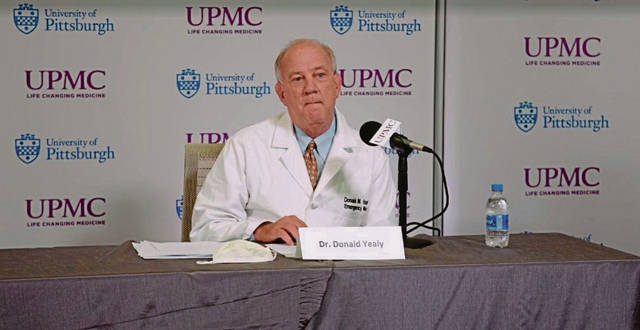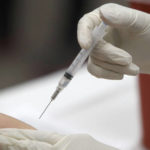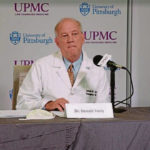A safe, effective vaccine for covid-19 will not be the end of the coronavirus pandemic, UPMC doctors said Thursday.
The disease is “incredibly dynamic,” said Dr. Oscar Marroquin, UPMC chief health care data and analytics officer. The ways people respond to the virus and how doctors treat it keep changing.
Compared with the spring, fewer people are dying and more people are recovering, said Dr. Donald Yealy, UPMC’s senior medical director and chairman of its Emergency Medicine Department.
Key measures—including UPMC’s #COVID19 case positivity rates, amount of time our patients spend in the hospital, their use of ventilators, and death rates—are all lower now than in the earlier part of this pandemic. – UPMC’s Dr. Donald Yealy. https://t.co/CXCcBYHfP2 pic.twitter.com/6X4PPEzryg
— UPMC (@UPMCnews) September 3, 2020
Positivity rates, length of hospitalization, need for ventilators and death rates have all decreased, he said.
Yealy, Marroquin and Dr. Derek Angus, UPMC’s chief health care innovation officer and chair of critical care medicine, attributed the encouraging numbers to better knowledge of covid-19 and its treatment strategies.
The treatments include using steroids in severely ill patients, an approach that is proving to be effective in helping people recover from the disease.
UPMC and University of Pittsburgh researchers on Wednesday published findings in the Journal of the American Medical Association from an international study led by the Pitt researchers that show steroids can be effective.
The doctors warned the disease isn’t going away, even after a safe, effective vaccine is ready for use.
Vaccines by themselves “won’t be the singular changing action or solving issue” for the pandemic, Yealy said. “I don’t think they’ll be the complete solution for covid-19.”
“Everyone—all of us in our communities and all medical professionals—is learning to adapt and live with #COVID19, something we will continue to do.” – UPMC’s Dr. Donald Yealy. https://t.co/CXCcBYHfP2 pic.twitter.com/TinSOI7KjS
— UPMC (@UPMCnews) September 3, 2020
On Wednesday, The New York Times reported the Centers for Disease Control and Prevention has told public health officials to be prepared to distribute a vaccine to health care workers and high-risk groups by early November. Angus called this timeline “extremely optimistic.”
“It’s good to be ready,” Angus said. But he and Yealy noted vaccines need to go through trials that show they work and are safe for people to use.
“We can’t predict what the future holds,” Yealy said.
Doctors are gearing up for the flu season. Autumn, which means people will be spending more time indoors, will impact the spread of covid-19, Yealy said.
Two things haven’t changed during the course of the pandemic, Yealy said:
• Wearing a mask and following basic guidelines about social distancing and hygiene is the most effective way to prevent spread of the virus.
• Those who are at greatest risk for the disease and who will be affected adversely by getting it are the most vulnerable: people who are older and who have underlying health conditions.
“This virus looks for the most vulnerable,” Yealy said. “We need to stay focused on this.”











